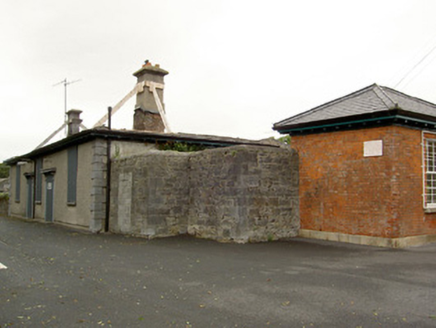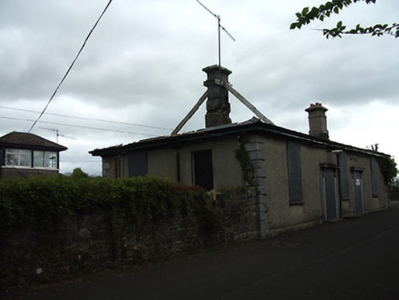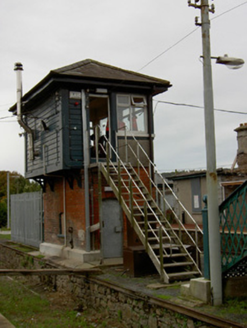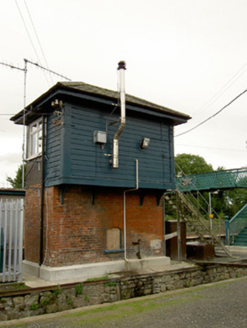Survey Data
Reg No
22123005
Rating
Regional
Categories of Special Interest
Architectural, Social
Original Use
Railway station
In Use As
Railway station
Date
1850 - 1855
Coordinates
240625, 122049
Date Recorded
16/05/2005
Date Updated
--/--/--
Description
Detached U-plan five-bay single-storey railway station building, built 1853, with two-bay single-storey extension to east. Now disused. Roof has been removed. One rendered chimneystack, one brick and cut limestone with carved coping, cast-iron rainwater goods and overhanging eaves. Roughcast rendered walls with tooled limestone quoins. Square-headed window openings, currently boarded up, with stone sills. Square-headed entrance openings with stone carved limestone cornices and console brackets, having limestone step, and currently boarded up. Random rubble limestone wall connecting north elevation with square-plan red brick extension, latter having hipped slate roof with overhanging eaves, red brick walls in Flemish bond with square-headed openings, fixed barred timber frame window with stone sill, and timber battened entrance door. Two-bay two-storey signal box to north platform has hipped slate roof with ridge tiles and cast-iron rainwater goods, roughcast rendered walls to first floor south elevation with render string course, overhanging bracketed painted timber weatherboard to north elevation, red brick to ground floor, with concrete plinth. Square headed openings to first floor with replacement uPVC windows and entrance door. Segmental-headed openings to ground floor with fixed timber windows and replacement metal entrance door. Accessed by flight of recent metal steps. Railway station situated down laneway, with random rubble limestone boundary wall and piers, with double-leaf metal gate.
Appraisal
The establishment of a national railway network brought an era of great social and economic activity to Ireland. This railway station building with its classical proportions forms part of a group of such structures. Fine craftsmanship is evident in the stone carving to the canopies, evidence of other remaining original material is obscured by the blocking up of the openings.







